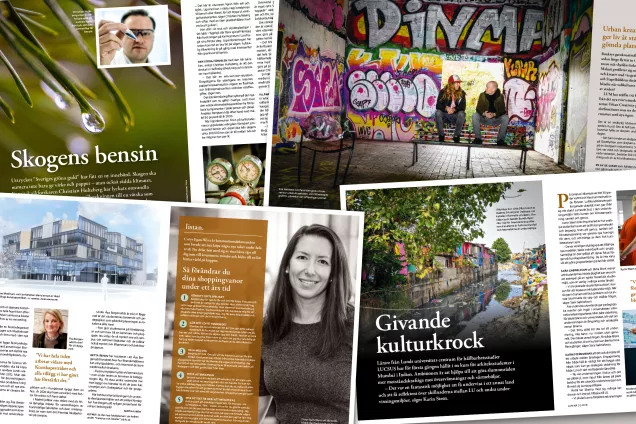“A bad rehabilitation ends up being very expensive”, says Lars-Åke Lööv, elected representative of SACO-s.
When it comes to rehabilitation after physical disease, he thinks the process is often well managed at LU. But when it is about mental ill health, it is more difficult.
“The mental rehabilitations are the major and more difficult cases. When dealing with physical difficulties, it is clear what is needed and these cases are often managed successfully. It is more difficult to know how unwell someone feels when they have suffered burn-out”, says Lars-Åke Lööv.
Along with the Occupational Health Service, he thinks that managers, who may only come across a few cases of rehabilitation, should more often get help from experienced human resources coordinators.
“We get more and increasingly difficult cases in which employers could have handled things better. A bad rehabilitation ends up being very expensive”, says Lars-Åke Lööv, adding that the three employee organisations at LU, – SACO-s, ST and Seko – have pointed this out to LU.
The employee organisations would like to have proper sick leave statistics on which to base their conclusions, but no such figures exist at present. It is difficult to produce figures that correspond to reality at LU – doctoral students meticulously report sick leave as they get an equivalent number of days’ extension to their doctoral studentships. University teaching staff, on the other hand, seldom report illness as they have some margin to reschedule their lectures. The reasons for sick leave are also not apparent from the figures available.
Lars-Åke Lööv would like the employee organisations to be involved in all rehabilitation cases, but they are often not brought in until something has gone wrong.
“We are a mental support for the employee. We would prefer to be present from the first meeting, precisely to avoid unnecessary discord between the employer and the employee.”
Even if the task of the employee organisation is to support the employee, they sometimes experience their role as being supportive of the manager in difficult meetings, as the employee organisation has extensive experience of rehabilitation cases and knows what rules apply.
“Often, solutions are available outside the box and it is about listening really carefully to understand what is required to enable the employee to get back to work.”
The employee organisation can also help employees in their contact with Försäkringskassan and the rules for sick leave. But they also see it as their role to explain the employee’s obligations.
“We want to play the role of an honest and critical friend, and we also clarify the employee’s responsibility: to take an active part in their own rehabilitation”, says Lars-Åke Lööv.
Lars-Åke Lööv thinks that, at LU, you cannot count on sufficient support from human resources for managers to guarantee a positive rehabilitation.
“You are entitled to the same support in your rehabilitation, regardless of where you are employed, but it doesn’t always work that way”, says Lars-Åke Lööv.
“In this case, I am a keen advocate for centralisation. It is a structural problem that the costs are borne so far out in the organisation”, he says, adding that for a research team of 10 people, with responsibility for its own finances, rehabilitation is very costly.



